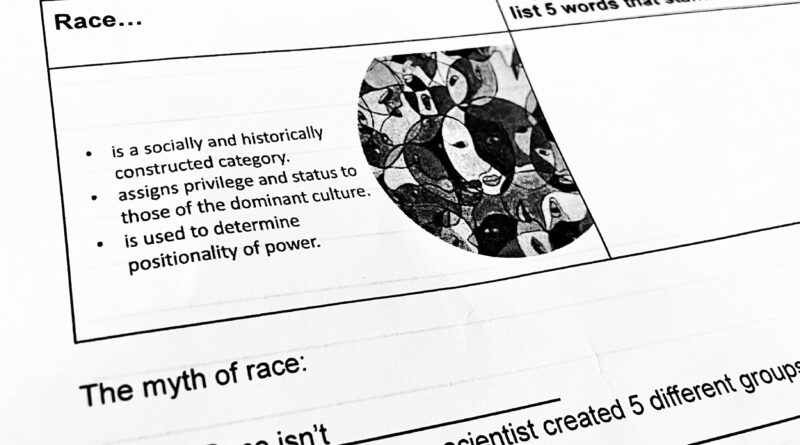CVHS ethnic studies pilot lessons roll into action
After extensive planning, CVHS ethnic studies pilot lessons are officially being implemented into Comparative Culture and Geography classes. Full semester-long ethnic studies classes will gradually replace all freshman CCG courses by 2025.
“The goal of the class is for us to think about [our collective history] in a deeper way and look at different perspectives,” said social studies teacher Paolo Espiritu.
Espiritu is one of several teachers who have been working since last year on an ethnic studies pilot. Together with community experts as well as the ethnic studies elective teacher at Canyon Middle School, they have developed a high school curriculum framework that differs greatly from CCG.
While CCG is centered on a global perspective, ethnic studies is “more focused on the United States and the individuals that are living there,” explained social studies teacher Jennifer Sitkin.
The course will tackle themes of self and identity, oppression and resistance, history of ethnic studies, migration and displacement, systems and institutions, and community practice.
“We’ve done a lot of interesting activities, and our assignments have been really informational,” said freshman ethnic studies student Lacey Brown.
“My ethnic studies experience has been eye-opening,” added freshman Gabriela Ortiz. She said that the class has helped her “develop a new perspective” on “what culture and race can be to other people.”
CVHS’s switch to ethnic studies is not unique; California schools have been developing the course since Assembly Bill 101 in 2021 declared it a high school graduation requirement.
Although Espiritu and Sitkin have not yet received anything personally, this change has sparked nationwide pushback. In March 2023, the San Francisco Chronicle reported that San Mateo Union High School District received over 800 complaints, claiming their new ethnic studies curriculum is promoting “left-wing dogma.”
“If you look back traditionally, the way that history has been looked at in the United States is from a narrative that only looks at the ‘winners,’” Sitkin responded. “It’s important to understand and examine systemic discrimination and racism and oppression and the impact on particular groups. The class is not intended to call out anybody or hurt people. It’s just about elevating people’s experiences, making room for everybody’s stories, and validating different individuals.”
“I don’t think there’s anything controversial,” commented Brown. “I think it’s important to learn about different ethnicities and cultures, and the diversity in our community.”
The ethnic studies curriculum is dynamic, so while themes are set, teachers will continually incorporate different current issues for students to deconstruct and understand. Additionally, teachers during these two pilot years have the freedom to pick and choose which themes they wish to teach alongside traditional CCG units. During this time, they are eager for feedback to improve.
“I told my students, ‘We’re all trying this out together,’” said social studies teacher Britney Brown. “I want their feedback on what they got out of the lesson and how they thought it went.”
Sitkin anticipates that there will likely be some pushback to the course in the future. She acknowledges that challenges will inevitably arise, “just anytime you’re implementing a new course and it’s sensitive topics about people’s experiences and oppression and mistreatment and switching how we’ve looked at things in the past.”
Overall, however, the Castro Valley community has been supportive and ethnic studies teachers are hopeful that the course will allow students to better understand others’ perspectives as well as their own histories.
“For me as a person of color, I remember growing up and not seeing myself in the curriculum. And if you don’t know your history, you don’t really know yourself,” Espiritu reflected. “We have a very diverse community and I want to make sure that all people can see themselves reflected in the courses they’re learning about.”


whats the point of ethnic studies the only job you can get with an ethnic studies degree is being a teacher of ethnic studies it has no real world application and it takes up time that can be used to improve math and literacy which is sadly pretty bad in america.